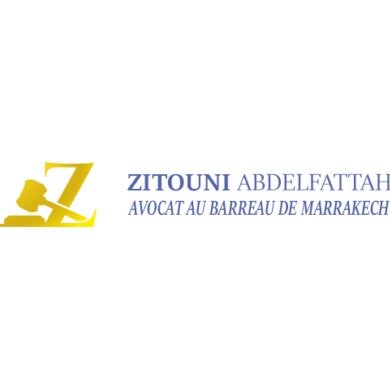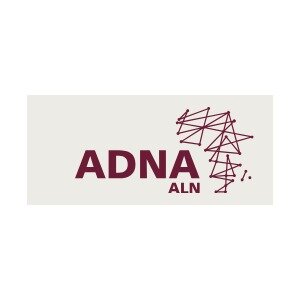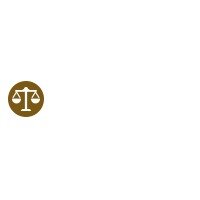Best Water Law Lawyers in Morocco
Share your needs with us, get contacted by law firms.
Free. Takes 2 min.
Or refine your search by selecting a city:
List of the best lawyers in Morocco
About Water Law in Morocco
Water Law in Morocco refers to the body of legislation, regulations, and administrative rules that govern the management, allocation, use, and protection of water resources in the country. Morocco, being a nation with limited water resources and recurrent droughts, places significant emphasis on sustainable water management. The primary legal framework is found in Law 36-15 relating to water, which replaced and expanded upon earlier water legal regimes to address modern challenges such as overconsumption, pollution control, and equitable distribution among agricultural, urban, and industrial users. The law also establishes institutional structures and mechanisms for conflict resolution, monitoring, and enforcement.
Why You May Need a Lawyer
Individuals and organizations may need a lawyer specialized in Water Law in Morocco for several reasons. If you are involved in activities that require water extraction rights or usage permits, such as agriculture, manufacturing, or construction, legal guidance is essential to navigate regulatory requirements. Water Law issues also arise in cases of water pollution, disputes between neighboring landowners, communal irrigation projects, and expropriation related to water infrastructure. Land development near rivers or aquifers, environmental impact assessments, and non-compliance allegations are other common scenarios. A lawyer can help you understand your rights and obligations, represent you in disputes, and ensure compliance with relevant laws.
Local Laws Overview
The cornerstone of Water Law in Morocco is Law 36-15, which governs all aspects of water resources. Key features include:
- Public Ownership of Water: All water resources are classified as public property, managed by the state for the benefit of current and future generations.
- Permits and Authorizations: Extraction, use, or diversion of significant water quantities requires prior authorization or concession, especially for groundwater and surface water.
- Water Management Agencies: The law establishes river basin agencies (Agences de bassins hydrauliques) responsible for local water planning, allocation, monitoring, and dispute resolution.
- Protection Against Pollution: Strict controls are in place for discharging pollutants into water bodies, with obligatory permits and penal sanctions for violations.
- Prioritization of Uses: Drinking water supply is prioritized, followed by irrigation and industrial needs, to ensure fair and sustainable usage.
- Environmental Impact Assessments: Projects impacting water resources must undergo environmental evaluation, especially large infrastructure or industrial activities.
- Conflict Resolution: Special administrative and judicial channels are set up for water-related disputes.
- Drought and Emergency Planning: The legal framework addresses water usage restrictions during shortages or droughts.
Frequently Asked Questions
What activities require a water use permit in Morocco?
Any extraction of groundwater, diversion of river or stream flow, construction of reservoirs, or large-scale irrigation generally requires a formal permit from the relevant authorities.
Who owns the water resources in Morocco?
Water resources in Morocco are considered the collective property of the state, managed for the public interest, and cannot be privately owned.
Can individuals or farmers appeal water allocation decisions?
Yes, affected parties can appeal allocation decisions through the administrative channels set by river basin agencies or, if necessary, through the courts.
How does the law address water pollution?
The law imposes strict regulations on discharging any pollutants into surface or groundwater. Violators face administrative sanctions and, in severe cases, criminal prosecution.
How are water shortages and droughts managed legally?
During declared drought periods, authorities can impose temporary restrictions, redeploy water resources, and prioritize essential uses such as drinking water over others.
Are there rules for building near rivers or lakes?
Yes, there are legal setbacks and restrictions for construction near water bodies to protect public property, prevent erosion, and conserve water resources.
Can water rights be transferred or sold?
Generally, water rights are not tradable as private property, but in some cases, permits or concessions may be reassigned or adjusted with the approval of authorities.
What is the role of river basin agencies?
River basin agencies manage local water resources, issue permits, monitor usage, enforce laws, and mediate disputes within their jurisdiction.
What penalties exist for illegal water extraction?
Illegal extraction or use of water can result in fines, removal of infrastructure, requirement to compensate affected parties, and, in severe cases, criminal charges.
Is desalination regulated under Moroccan Water Law?
Yes, large-scale desalination projects are regulated and require permits, especially concerning environmental impacts and integration into public supply systems.
Additional Resources
For those seeking more information or assistance, consider the following resources:
- Ministry of Equipment and Water (Ministère de l’Equipement et de l’Eau): The primary governmental body overseeing national water policy and regulation.
- River Basin Agencies (Agences de Bassins Hydrauliques): Regional bodies responsible for local water management, permit issuance, and dispute resolution.
- National Office for Electricity and Drinking Water (ONEE): Oversees drinking water supply and sanitation networks.
- Local municipal offices: Provide guidance and receive permit applications for smaller-scale water projects.
- Environmental NGOs: Certain organizations assist with legal education, dispute mediation, and public interest litigation in water matters.
Next Steps
If you believe you require legal assistance regarding Water Law in Morocco, consider the following steps:
- Clearly define your issue or objective related to water resources, such as obtaining a permit, resolving a dispute, or seeking compensation for damages.
- Collect relevant documents, contracts, or administrative correspondence concerning your water issue.
- Consult with a lawyer experienced in Water Law who can provide advice specific to your situation and represent your interests before authorities or courts.
- Contact the appropriate river basin agency or governmental office for initial guidance and administrative requirements.
- If you face an urgent water-related conflict affecting your rights or livelihood, act promptly, as legal deadlines and procedures may apply.
Early legal advice and a clear understanding of your rights can help you avoid penalties, protect your interests, and contribute to the sustainable management of Morocco’s precious water resources.
Lawzana helps you find the best lawyers and law firms in Morocco through a curated and pre-screened list of qualified legal professionals. Our platform offers rankings and detailed profiles of attorneys and law firms, allowing you to compare based on practice areas, including Water Law, experience, and client feedback.
Each profile includes a description of the firm's areas of practice, client reviews, team members and partners, year of establishment, spoken languages, office locations, contact information, social media presence, and any published articles or resources. Most firms on our platform speak English and are experienced in both local and international legal matters.
Get a quote from top-rated law firms in Morocco — quickly, securely, and without unnecessary hassle.
Disclaimer:
The information provided on this page is for general informational purposes only and does not constitute legal advice. While we strive to ensure the accuracy and relevance of the content, legal information may change over time, and interpretations of the law can vary. You should always consult with a qualified legal professional for advice specific to your situation.
We disclaim all liability for actions taken or not taken based on the content of this page. If you believe any information is incorrect or outdated, please contact us, and we will review and update it where appropriate.
Browse water law law firms by city in Morocco
Refine your search by selecting a city.

















